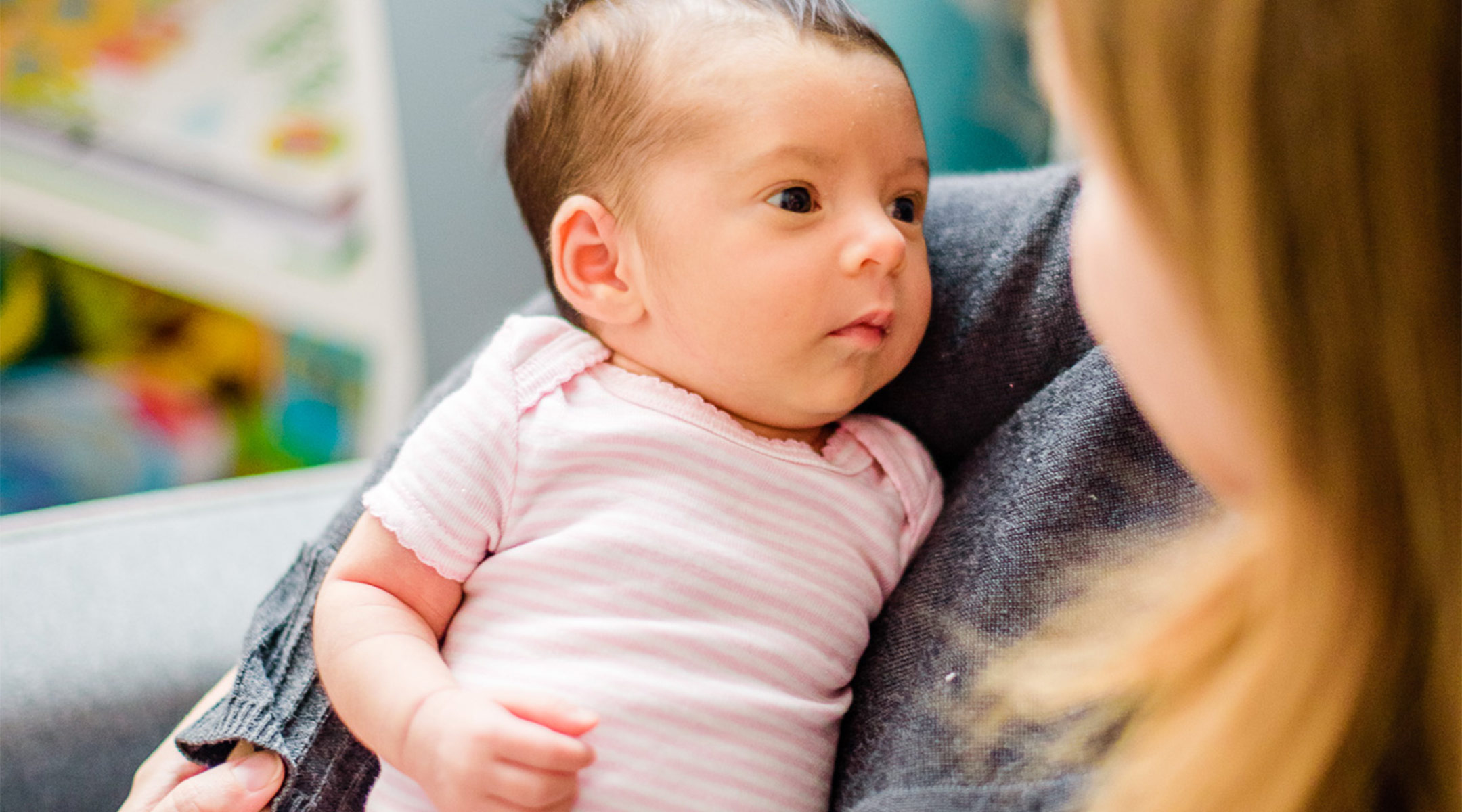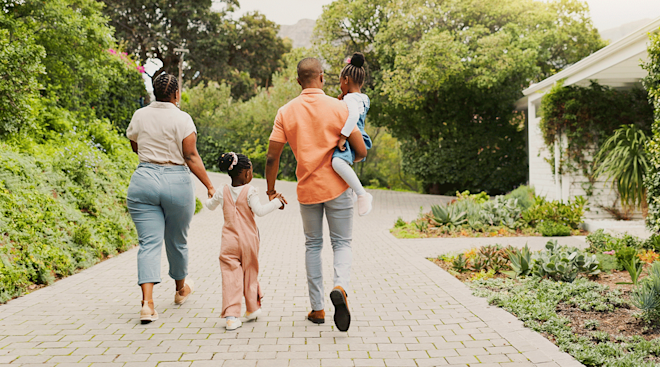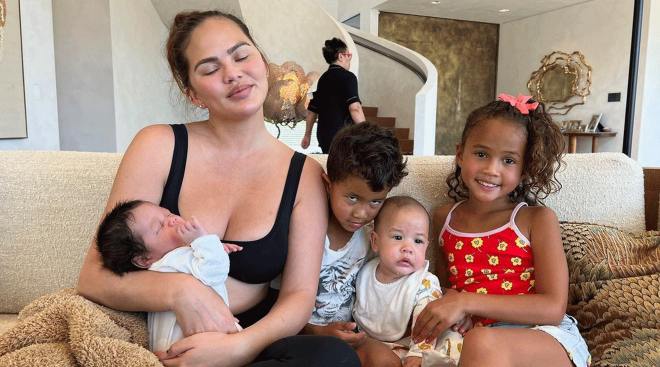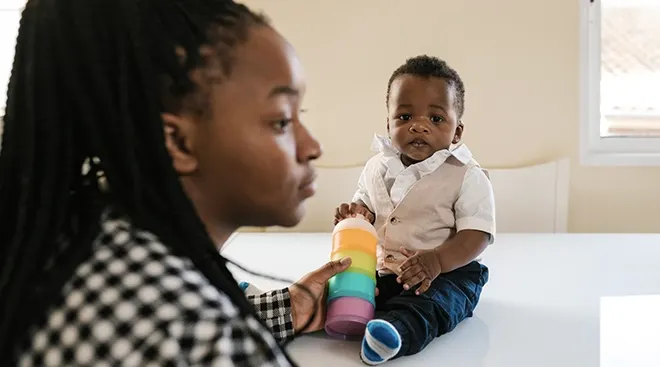Why New Moms Lose Their Identity (and How to Get It Back)
Needless to say, new moms who haven’t slept, showered or stepped outside in days often don’t feel like themselves. Even when you’ve just added to your family in the best way possible and are basking in a sense of profound love, it’s normal to also feel like a part of you is lost in your transition into motherhood. Sound familiar? Research shows you’re not alone.
When you become a mother, you experience more than just a changing body and shifting hormones. Your brain creates chemical signals that make baby the focus of your world, but your mind still remembers the person you are apart from your infant. This can cause ambivalence, anxiety and doubt—emotions that society doesn’t talk about openly with new parents. “Motherhood causes an upheaval in your sense of self because every aspect of who you are is overturned,” says psychotherapist Liz Colliza, MAC, LPC, NCC. “Women take on a new and central role as Mom, but their former roles as wife, daughter, sister, friend still exist. This causes internal tension.”
A lot can feel different after having a baby. Your priorities, responsibilities and daily routines suddenly shift, and your free time, social life, work life, romantic life and physical appearance can all undergo major changes in one fell swoop. Of course, change isn’t bad—after all, what’s better than baby snuggles?—but it’s no wonder women worry about losing their identity. So what can you do when you’re feeling like your sense of self is slipping away? Here are five things to try:
1. Embrace positive self-talk. It can be easy to fall into patterns of blame when things get rough, and the person we often blame the most is ourselves. If you’re feeling like your identity is changing and you find yourself engaging in negative self-talk, start here. “Tell yourself this is a challenging season and your sense of self is being redefined,” Colizza says. “Remind yourself you’re new to all of this and that it’s valid for you to feel overwhelmed and exhausted.”
2. Hold onto perspective. In the midst of sleepless nights and dirty diapers, it’s easy to think about your past life and feel down. But don’t forget that with a new baby, everything is a phase. Before you know it, your child will be a walking, talking toddler and you’ll reminisce about those tiny toes and newborn smell. A great way to keep perspective is to ask a mom with an older child how she managed to hold onto her sense of identity in the early days. Remind yourself that soon your little one will be more independent. “Eventually, you’ll have more mental and emotional space,” Colliza says.
3. Open up to loved ones. Be vocal about your struggles with friends, family and partners. Unfortunately, 76.2 percent of couples with kids feel their partner isn’t good at responding to emotional signals, according to Lasting, a research-based marriage counseling app that’s backed by The Bump parent company. Perhaps even more staggering is that 84.7 percent feel they can’t discuss issues in a positive way. “Even though your partner can’t fully understand your role as a mom, they also can’t read your mind,” Colizza says. “Sharing your experience with them will increase your emotional connection and make you feel less alone.” With apps like Lasting, which offer easy access to data-driven tools and exercises, you and your partner can create new pathways for positive communication.
4. Make time for your hobbies. What’s something you love to do that’s not baby-related? Is there a hobby or activity you’ve missed out on since becoming a mom? “Find small ways to do the things that allow you to still feel like your old self,” Collizza suggests. “Do something that lets you connect with yourself outside of connecting with your baby and your partner.” Make time to invest in yourself. Engaging in your favorite activity can help you remember who you are and who you want to be.
5. Try talk therapy. Unfortunately, the stigma of therapy often prevents women from seeking the help they need, even when their symptoms are treatable. “If a new mom finds that she’s fixating on certain fears or those feelings and thoughts intensify, she needs to seek more help,” Colizza says. Find a licensed professional you can trust to support you. Making the investment in your mental health is always worth it.
Ultimately, destigmatizing this time of change for moms and making space for healthy conversations will not only create a safe space for you to speak up about your experience, but it’ll also create a safe space for your child to thrive. As you settle into motherhood, you’ll find your new rhythm and your sense of identity will expand, not narrow, to include your role as Mom. Through it all, whether you reach out to family, friends or professionals, never hesitate to seek the help you need—because a healthy mom means a healthy baby too.
Published March 2019
Please note: The Bump and the materials and information it contains are not intended to, and do not constitute, medical or other health advice or diagnosis and should not be used as such. You should always consult with a qualified physician or health professional about your specific circumstances.
Plus, more from The Bump:
Navigate forward to interact with the calendar and select a date. Press the question mark key to get the keyboard shortcuts for changing dates.




















































